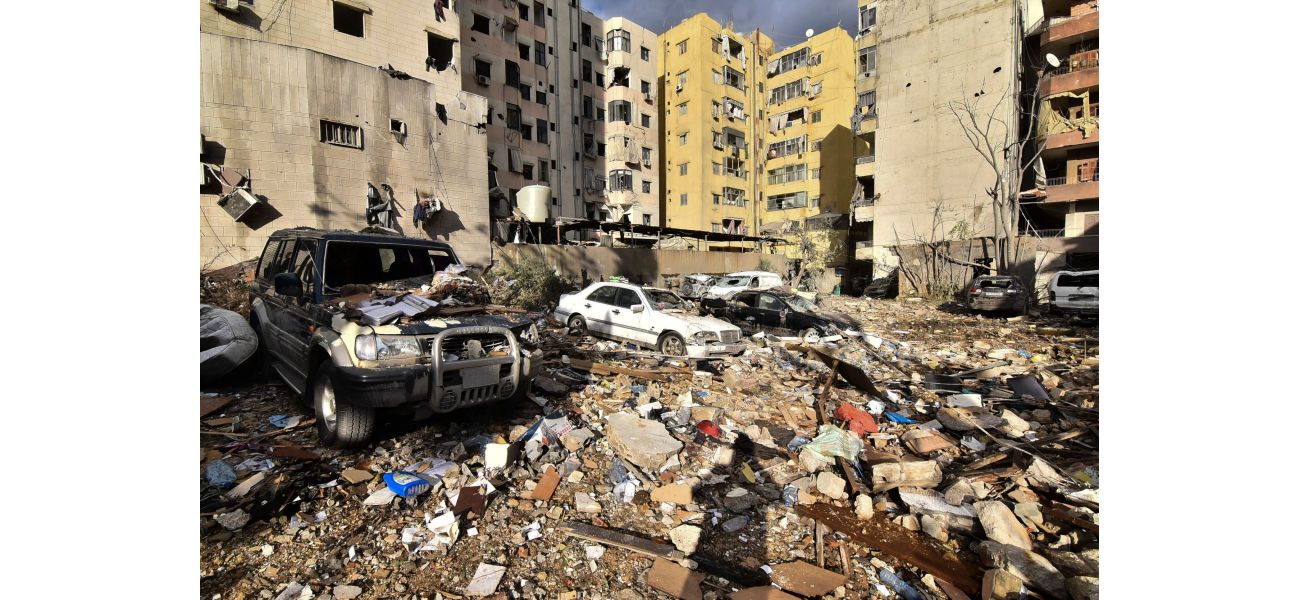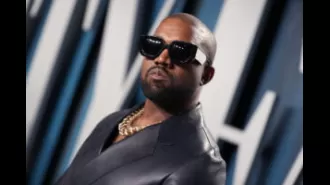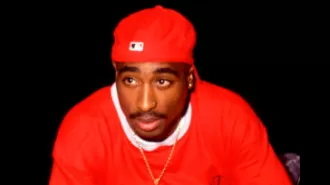Israel and Hezbollah reach a ceasefire agreement amid airstrikes causing chaos in Beirut.
Israel's leader Netanyahu and security cabinet approve ceasefire agreement.
November 26th 2024.

In the latest development of the ongoing conflict between Israel and Hezbollah, a ceasefire deal has been reached in Lebanon. Israel's prime minister, Benjamin Netanyahu, along with his security cabinet, has approved the deal with a majority vote of 10-1. The agreement is set to take effect at 4am local time on Wednesday, with hopes that it will pave the way for a truce to be established.
However, just minutes after the ceasefire deal was agreed upon, the Lebanese capital of Beirut was hit by air strikes, as reported by US President Joe Biden. Despite this setback, Mr. Netanyahu has defended the ceasefire, stating that Israel has inflicted significant damage on Hezbollah and can now shift its focus to the Hamas militants in Gaza, as well as its top security concern, Iran. He also emphasized that Israel will not hesitate to strike back hard if Hezbollah violates the terms of the agreement.
On Monday, Israeli air strikes across Lebanon resulted in the deaths of at least 31 people, with commercial and residential buildings in Beirut and the port city of Tyre being targeted. Israel claims to have been targeting areas known to be strongholds of Hezbollah and had issued evacuation orders for the southern suburbs of Beirut. Even today, residential buildings in central Beirut were hit, and evacuation orders were issued for 20 more buildings. This marks the most intense wave of strikes by Israel since the beginning of the conflict, as it appears that the IDF is aiming to continue attacking Hezbollah before the ceasefire takes effect. Additionally, ground troops have also reached parts of the Litani River for the first time, which is a key aspect of the ceasefire.
But what exactly does the Israel-Hezbollah ceasefire deal entail? The agreement calls for a two-month halt in fighting, during which Hezbollah would need to end its armed presence in a significant portion of southern Lebanon, while Israeli troops would return to their side of the border. Furthermore, thousands of Lebanese troops and UN peacekeepers will be deployed in the south, and an international panel led by the United States will monitor the compliance of all parties involved. However, there are doubts about the implementation of the deal, as Israel has demanded the right to take action if Hezbollah violates its obligations, while Lebanese officials have rejected this demand.
In a statement, Mr. Biden stated that Israel reserves the right to resume operations in Lebanon if Hezbollah breaks the terms of the truce, but also added that the deal was designed to be a permanent cessation of hostilities. Despite this, Hezbollah continues to launch rockets, triggering air raid sirens in northern Israel. The European Union's top diplomat, Josep Borrell, has called for increased pressure on Israel to adhere to the ceasefire, stating that all security concerns have been addressed in the agreement brokered by the US and France. He also warned that if the ceasefire is not implemented, Lebanon will face further turmoil.
According to Lebanese health officials, more than 3,760 people have been killed by Israeli fire in the past 13 months, many of whom were civilians. The constant bombardment has displaced 1.2 million people from their homes. On the other hand, Israel claims to have killed over 2,000 Hezbollah members. In response, Hezbollah has forced around 50,000 Israelis to evacuate from their homes in the northern part of the country. For the latest updates on this ongoing conflict, follow The Agency on Twitter and Facebook, and you can also sign up for their daily push alerts to receive articles directly to your device.
However, just minutes after the ceasefire deal was agreed upon, the Lebanese capital of Beirut was hit by air strikes, as reported by US President Joe Biden. Despite this setback, Mr. Netanyahu has defended the ceasefire, stating that Israel has inflicted significant damage on Hezbollah and can now shift its focus to the Hamas militants in Gaza, as well as its top security concern, Iran. He also emphasized that Israel will not hesitate to strike back hard if Hezbollah violates the terms of the agreement.
On Monday, Israeli air strikes across Lebanon resulted in the deaths of at least 31 people, with commercial and residential buildings in Beirut and the port city of Tyre being targeted. Israel claims to have been targeting areas known to be strongholds of Hezbollah and had issued evacuation orders for the southern suburbs of Beirut. Even today, residential buildings in central Beirut were hit, and evacuation orders were issued for 20 more buildings. This marks the most intense wave of strikes by Israel since the beginning of the conflict, as it appears that the IDF is aiming to continue attacking Hezbollah before the ceasefire takes effect. Additionally, ground troops have also reached parts of the Litani River for the first time, which is a key aspect of the ceasefire.
But what exactly does the Israel-Hezbollah ceasefire deal entail? The agreement calls for a two-month halt in fighting, during which Hezbollah would need to end its armed presence in a significant portion of southern Lebanon, while Israeli troops would return to their side of the border. Furthermore, thousands of Lebanese troops and UN peacekeepers will be deployed in the south, and an international panel led by the United States will monitor the compliance of all parties involved. However, there are doubts about the implementation of the deal, as Israel has demanded the right to take action if Hezbollah violates its obligations, while Lebanese officials have rejected this demand.
In a statement, Mr. Biden stated that Israel reserves the right to resume operations in Lebanon if Hezbollah breaks the terms of the truce, but also added that the deal was designed to be a permanent cessation of hostilities. Despite this, Hezbollah continues to launch rockets, triggering air raid sirens in northern Israel. The European Union's top diplomat, Josep Borrell, has called for increased pressure on Israel to adhere to the ceasefire, stating that all security concerns have been addressed in the agreement brokered by the US and France. He also warned that if the ceasefire is not implemented, Lebanon will face further turmoil.
According to Lebanese health officials, more than 3,760 people have been killed by Israeli fire in the past 13 months, many of whom were civilians. The constant bombardment has displaced 1.2 million people from their homes. On the other hand, Israel claims to have killed over 2,000 Hezbollah members. In response, Hezbollah has forced around 50,000 Israelis to evacuate from their homes in the northern part of the country. For the latest updates on this ongoing conflict, follow The Agency on Twitter and Facebook, and you can also sign up for their daily push alerts to receive articles directly to your device.
[This article has been trending online recently and has been generated with AI. Your feed is customized.]
[Generative AI is experimental.]
0
0
Submit Comment





